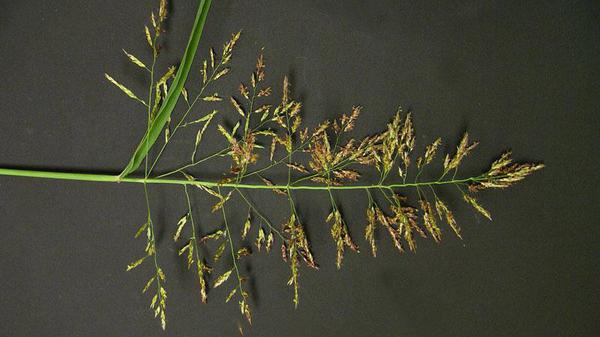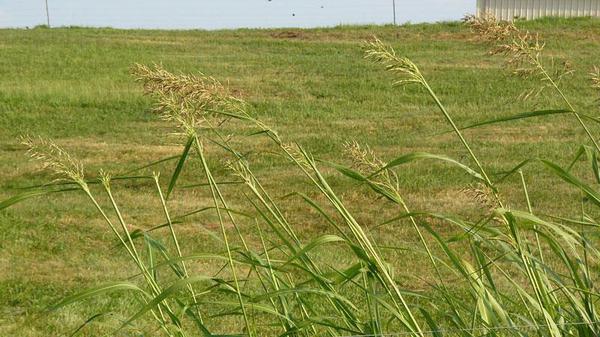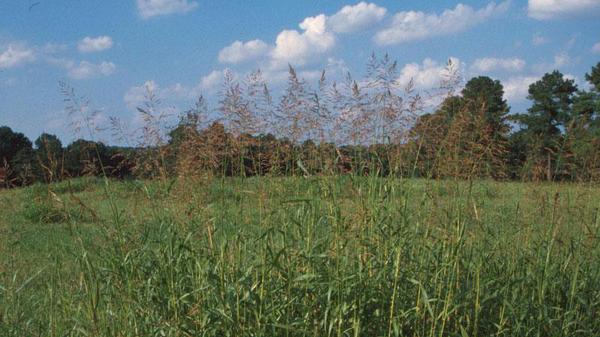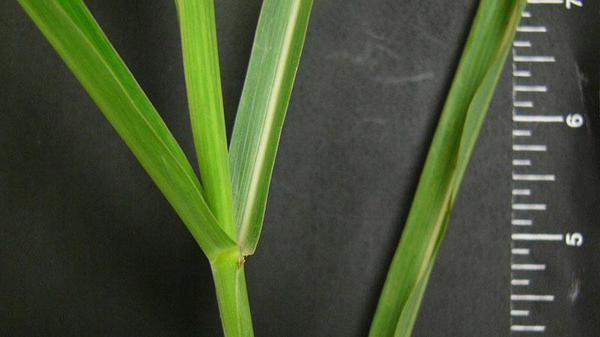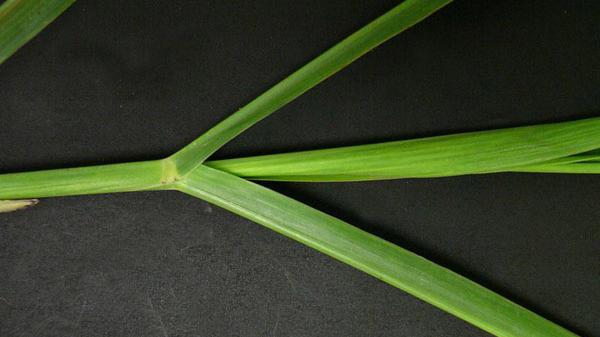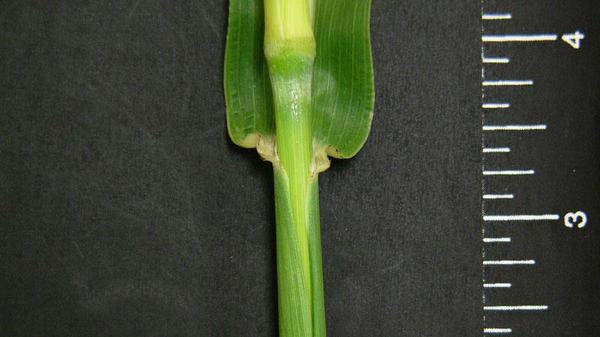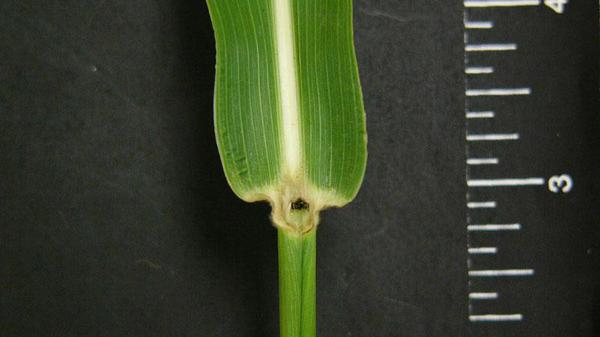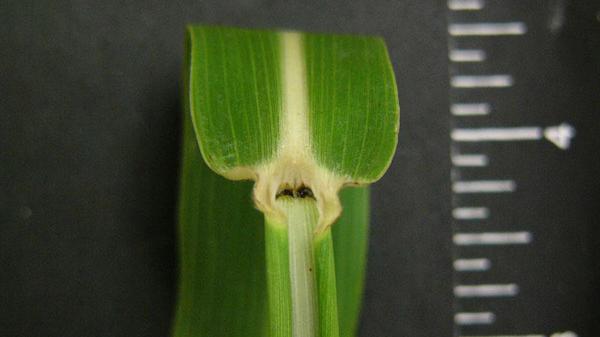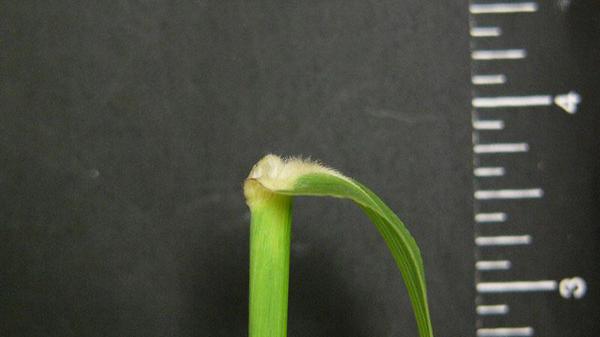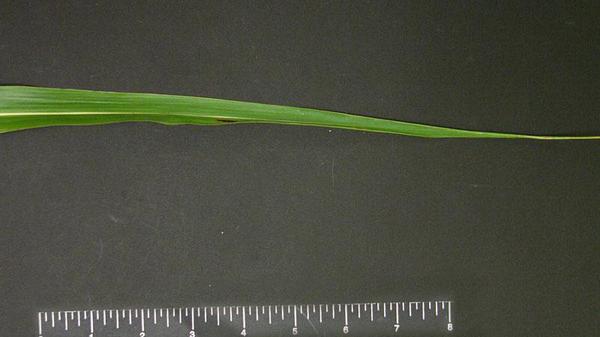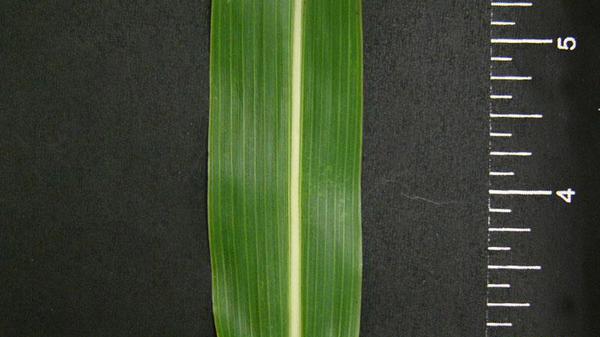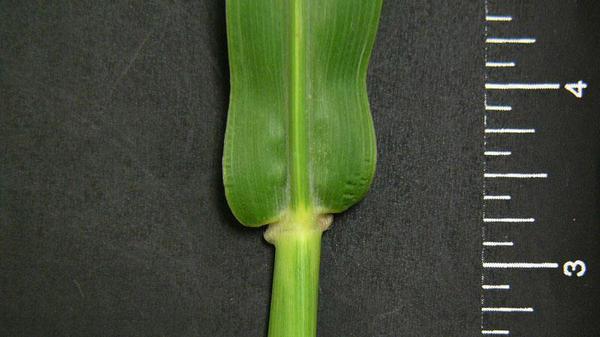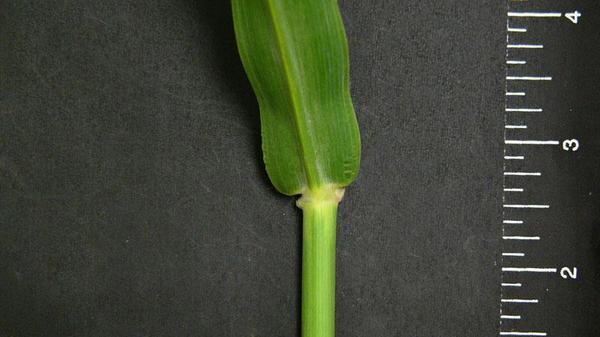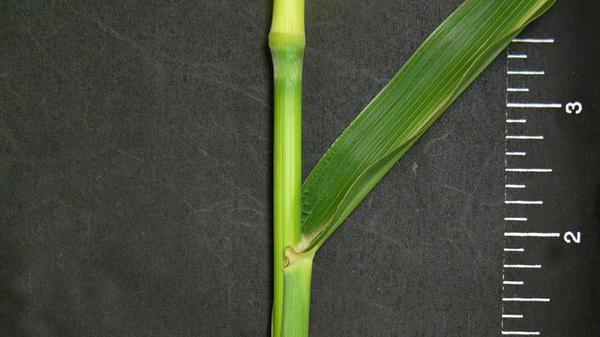Description
Johnsongrass (Sorghum halepense) is not a common weed in turf situations. It is frequently found on roadsides, but is also found in pastures and disturbed fields. It does not grow well in frequent, close mowing situations. As an adult plant, johnsongrass is characterized by its dense growth habit, with stems that can reach 6 feet in height. The leaf blades are rough, and the prominent white raised midveins that run the length of the leaf are distinctive. The seedhead is purple.
Cultural Control
Perennial grass weeds are not desirable as turfgrass species under any conditions. Therefore, every effort should be made to prevent these weedy grasses from becoming established in turf, as selective control measures are usually difficult. Selection of adapted turfgrass species and cultivars and the use of cultural practices are important in minimizing weedy grass encroachment and competition. Management practices include: (1) mowing at the recommended height for the selected turfgrass and removing clippings when seedheads of grassy weeds are present; (2) applying the proper amount of nitrogen at the correct time according to the turfgrass present; and (3) using soil tests to determine needed nutrients and lime.
Species Data
- SEEDHEAD / FLOWER
- VERNATION TYPE
- LIGULE TYPE
- membranous; fine hairs
- GROWTH SEASON / LIFE CYCLE
- perennial weed
- AURICLE TYPE
- LEAF BLADE TIP SHAPE
- sharp-pointed
Figure 10
- sharp-pointed
- LEAF BLADE WIDTH
- 0.4 - 1.2 inches (10 to 30 mm) wide
Figure 11
- 0.4 - 1.2 inches (10 to 30 mm) wide
- STOLON PRESENCE
- absent
- RHIZOME PRESENCE
- present
- COLLAR TYPE
- continuous
Figure 12, Figure 13
- continuous
- SHEATH MARGIN
- open
Figure 14
- open
- SHEATH TYPE
- round to somewhat flattened
Publication date: Nov. 7, 2017
N.C. Cooperative Extension prohibits discrimination and harassment regardless of age, color, disability, family and marital status, gender identity, national origin, political beliefs, race, religion, sex (including pregnancy), sexual orientation and veteran status.

